UltFone macOS Repair is a professional tool that can fix more than 200+ macOS problems, such as black screen, battery not charging, running slow, etc. What's more, the tool can also help macOS to downgrade or upgrade.
Follow this guide to learn how to fix macOS system, downgrade macOS and upgrade macOS.
Part 1: Fix macOS system
Standard Repair: Fix macOS Stuck Issues without Data Loss
Step 1: Download and Install UltFone iOS System Repair on Normal Mac
Run UltFone iOS System Repair on your normal mac computer and connect it to the computer that needs to be repaired. Once the device is recognized, click 'Repair macOS system issues' button to use macOS System Recovery tool.
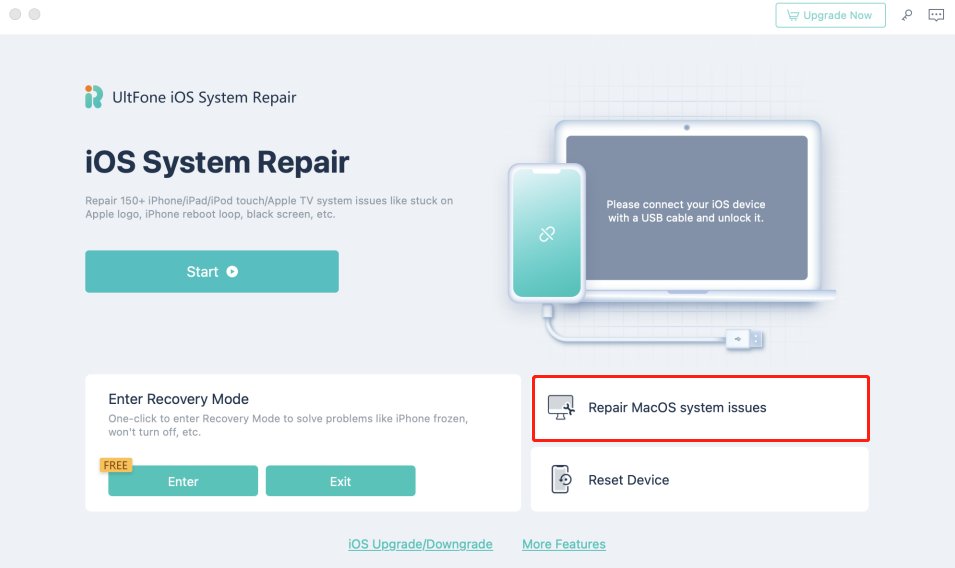
- Note:
- To repair macOS system successfully, it's highly recommended that you connect the the two macOS device using the Apple original lightning USB cable.
Step 2: Click 'Standard Repair' to Proceed
In the below interface, select 'Standard Repair' and read the note below to avoid repairing process failure. If you're ready, click 'Standard Repair'.
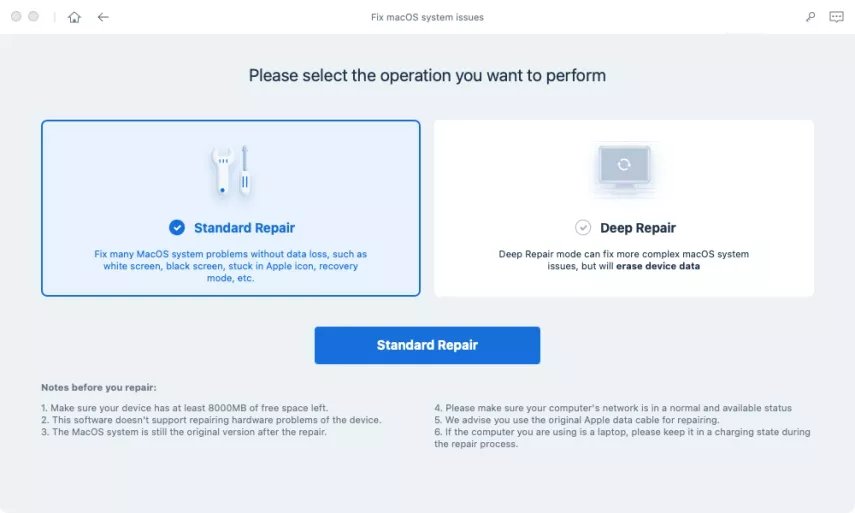
Step 3: Enter into DFU Mode
Select the model of the mac computer you need to be repaired and follow the instructions on the screen.
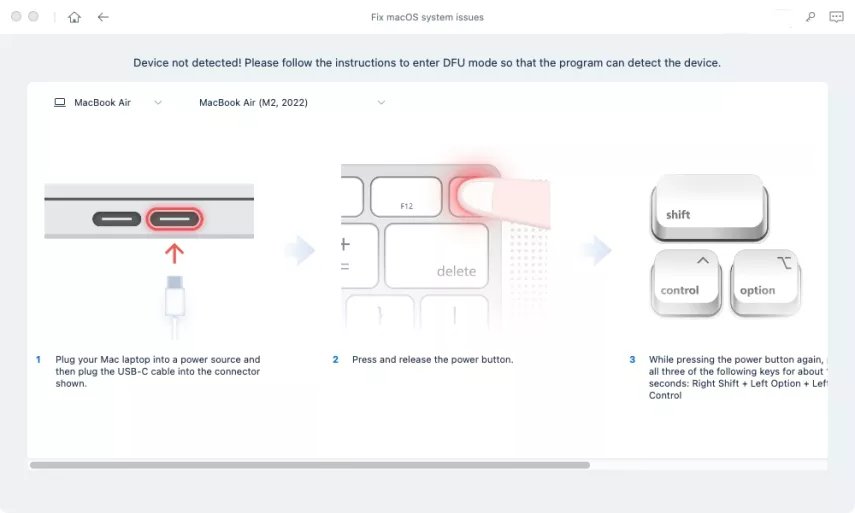
- Note:
- If your device can't be detected, please make sure that the model you have selected corresponds to your device model, and follow the instructions to put your computer into DFU mode.
Step 4: Download Firmware Package
If you're ready, click 'Download' to download the latest firmware package. It will take some time due to about 12GB firmware package.
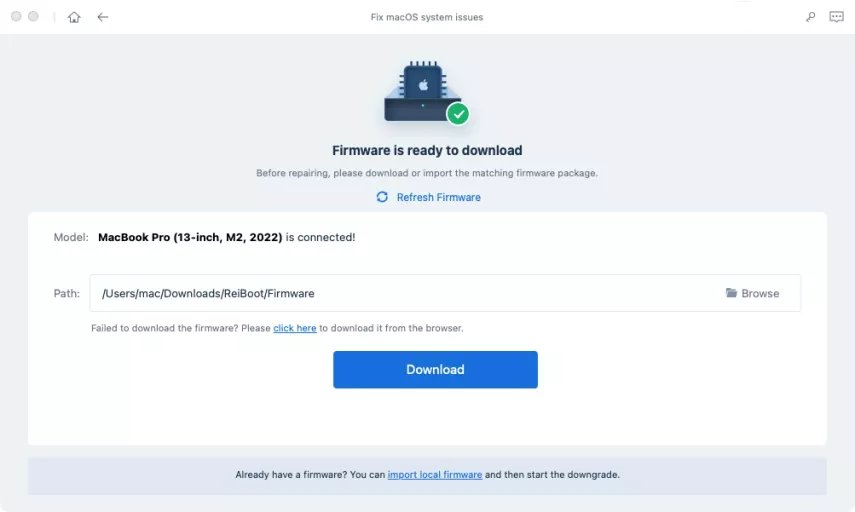
If you failed to download the firmware package, you can download it through browser by hit 'click here'.
If you've already downloaded the firmware package on computer, just click "import local file" to import the firmware manually.
Step 5: Start Standard Repair
Once the firmware package is downloaded on your computer, you can click 'Start Standard Repair' to start system recovery.
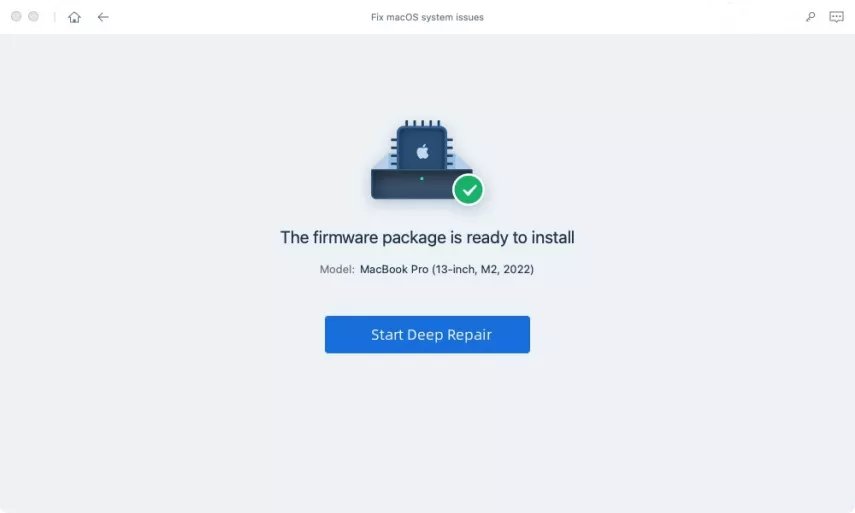
The whole repair process will take a few minutes, please wait patiently.
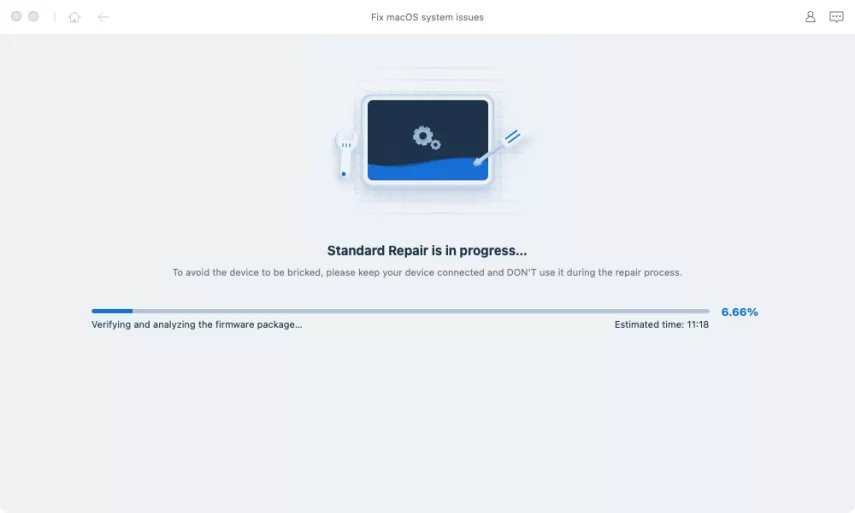
After the repair is done, your macOS device will automatically reboot and all your data will not be erased.
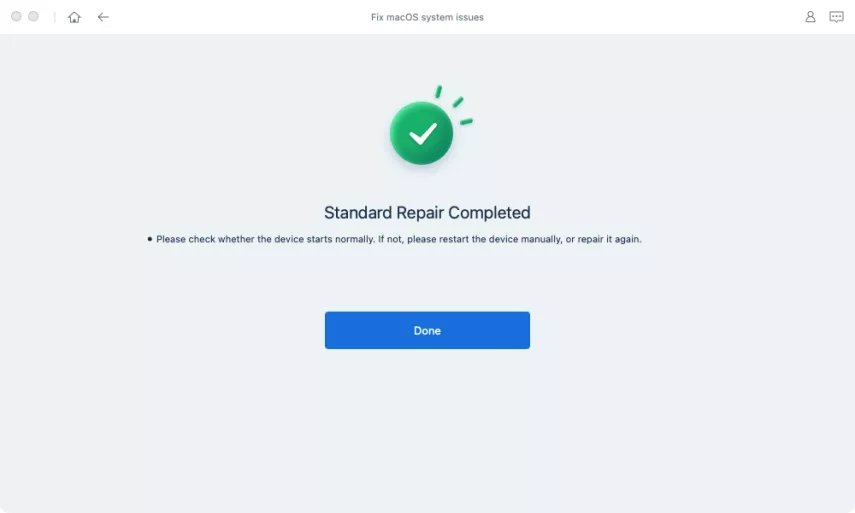
- If your Mac models is with the Apple T2, before repairing done, you should follow the instructions below steb by step:
- After you finished all the steps, please click the "Done" button and your Mac with Apple T2 will be repaired successfully without data loss.
Note:
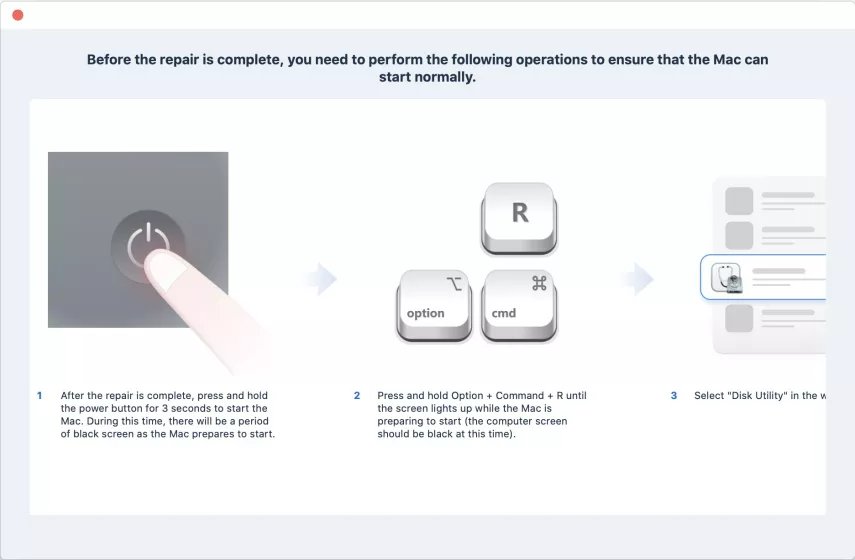
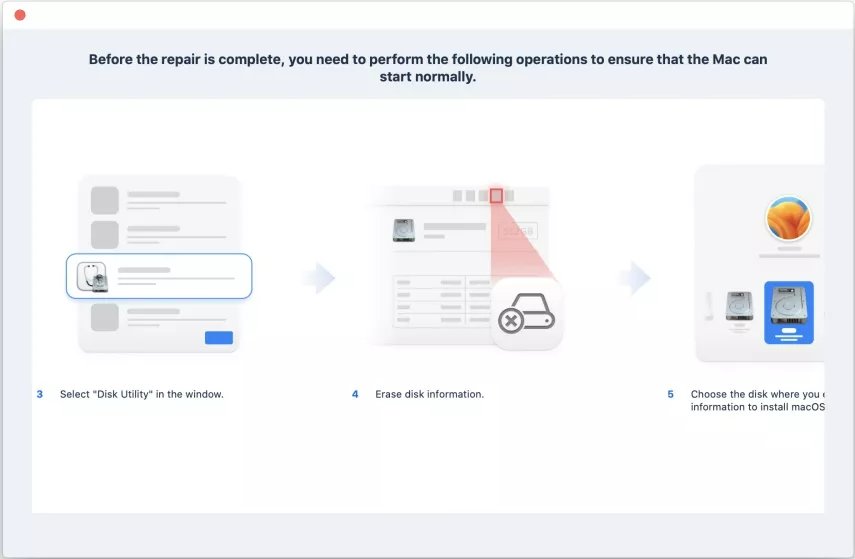
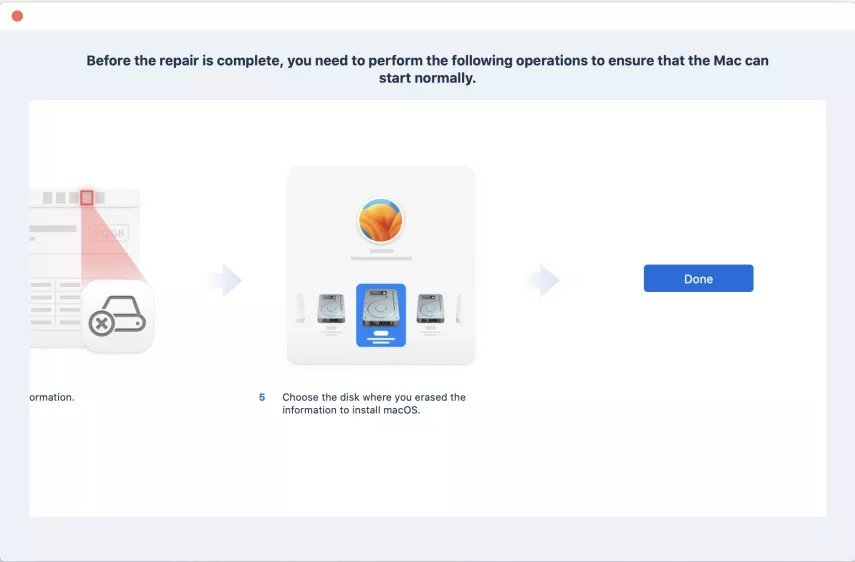
Deep Repair: Fix macOS System Issues with a Higher Success Rate
Deep Repair can fix more serious macOS system issues with a higher success rate but it will cause data loss. So when Standard Repair fails repair, you can take Deep Repair for a try.
Step 1: Download and Install UltFone iOS System Repair
Download and run UltFone iOS System Repair, connect your two Mac devices via a USB cable.
Step 2: Click "Deep Repair"
In the following interface, select "Deep Repair" and read the note below carefully. If there"s no problem, please click "Deep Repair".
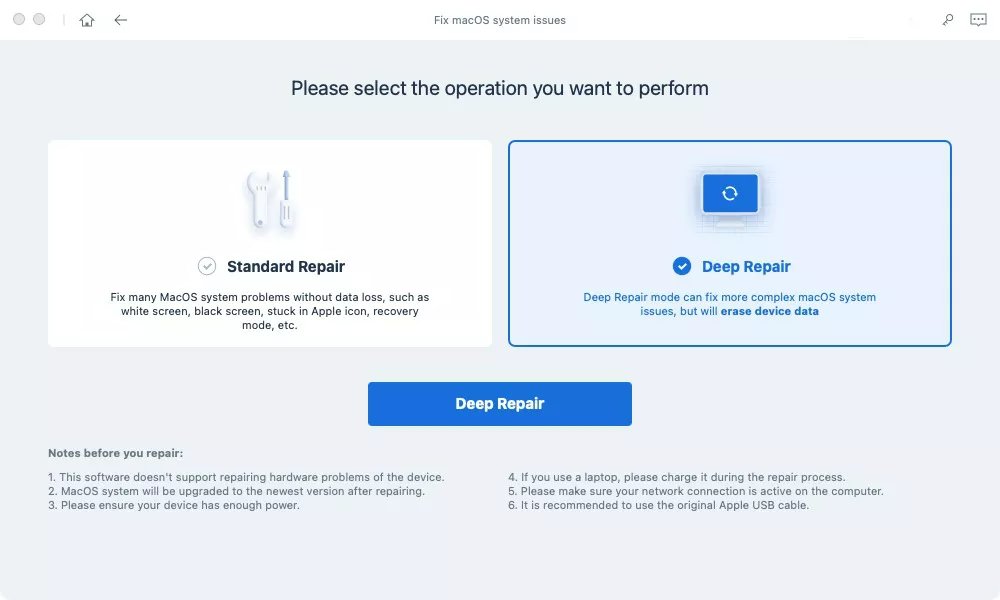
Step 3: Enter into DFU Mode
Select the model of the mac computer you need to be repaired and follow the instructions on the screen.

- Note:
- If your device can"t be detected, please make sure that the model you have selected corresponds to your device model, and follow the instructions to put your computer into DFU mode.
Step 4: Download Firmware Package
Now, you can start downloading firmware package by pressing "Download" button and it will take a few minutes.

Step 5: Start Deep Repair
Now, the firmware package has been downloaded, click "Start Deep Repair" to start repairing.

Deep Repair will cause all data and settings loss. If the device can operate, you can back up data first and then try again. If not, just click "Repair" to proceed.
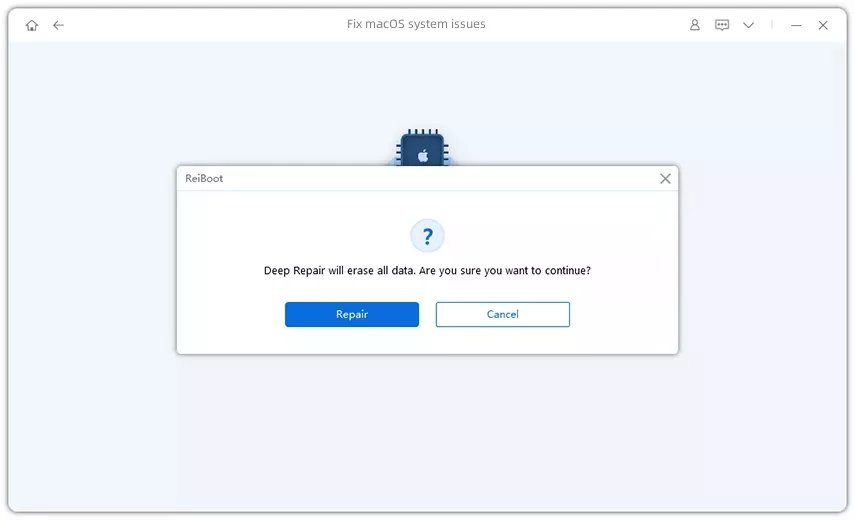
After a while, your device will be repaired successfully, just to check if your device goes back to normal.
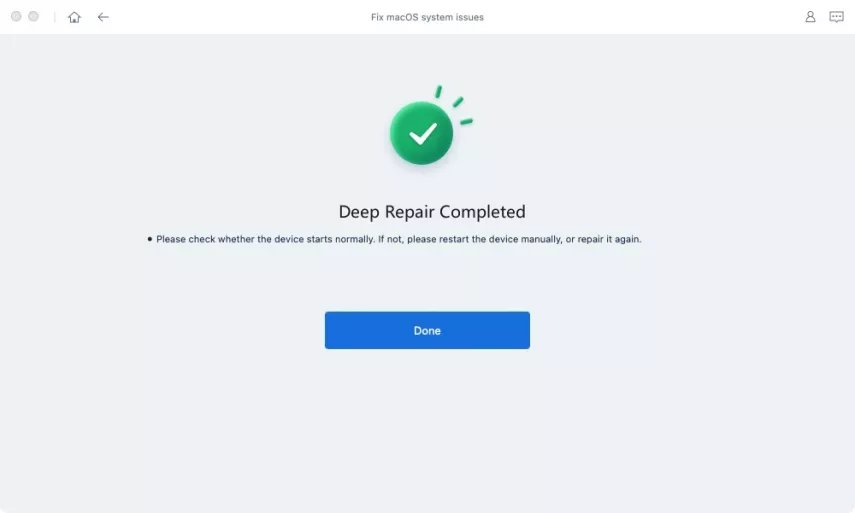
- Note:
- If your Mac models is with the Apple T2, before repairing done, you should follow the instructions below steb by step:
- After you finished all the steps, please click the Done button and your Mac with Apple T2 will be repaired successfully.



Part 2: Downgrade macOS
If you want to revert your Mac to a previous version due to compatibility issues, UltFone iOS System Repair is the best bet for you. It provides a hassle-free solution that saves time and effort. With just a few clicks, you can downgrade your macOS version, and UltFone iOS System Repair will handle the rest.
This guide mainly introduce how to downgrade your Mac devices. You need to download and install the UltFone iOS System Repair on your computer first, then follow the steps below.
Step 1. Connect Both Mac Devices
Run UltFone iOS System Repair on your computer and connect both Mac devices. Once the devices are connected, click “More Features” at the bottom left of the panel.
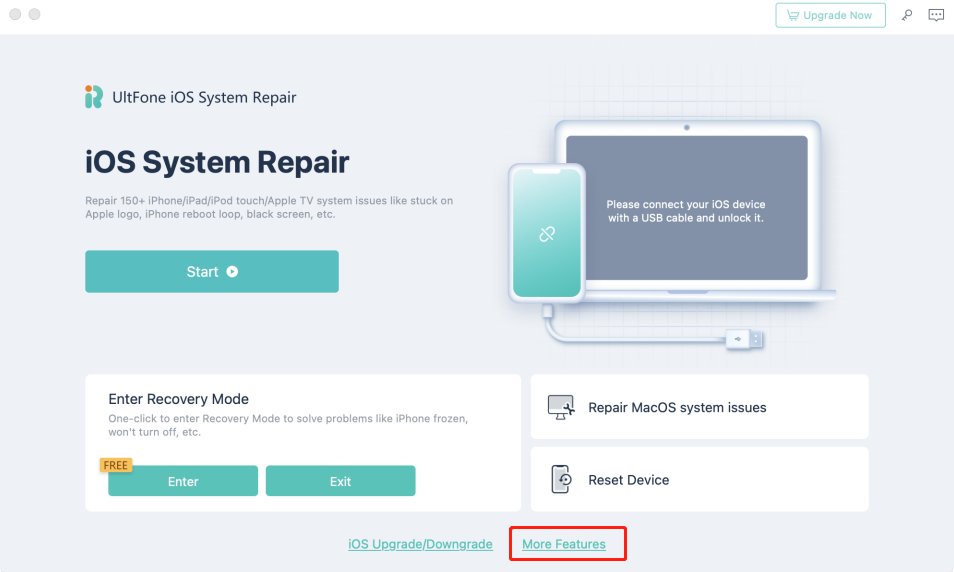
Step 2. Choose Downgrading System Option
No matter beta version or final version, you should choose Downgrading System mode. Then, click the button below.
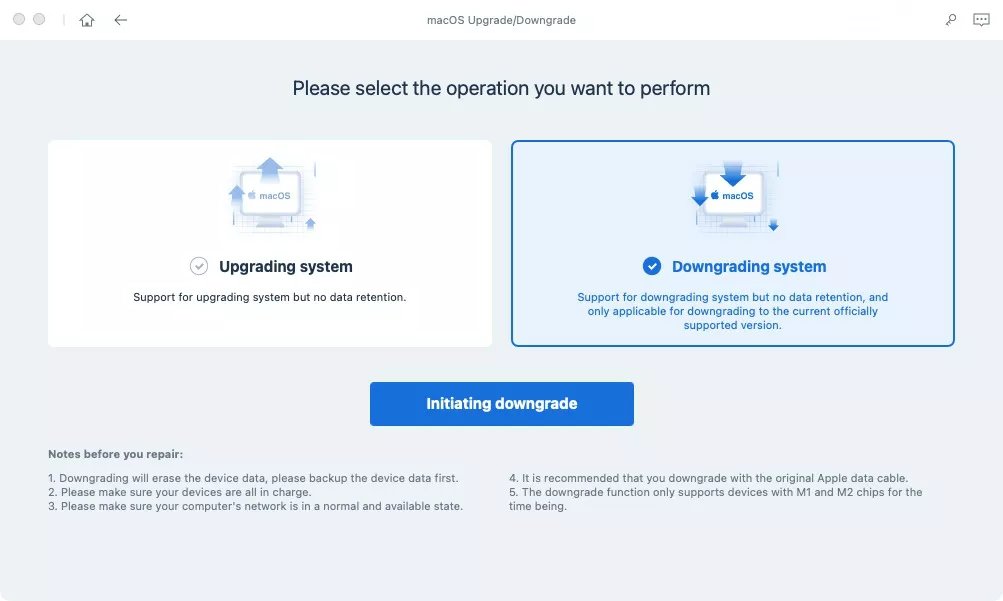
Step 3. Enter into DFU Mode
Follow the instructions below to put your mac into DFU mode. The methods are different from models, please make sure you choose the right model.
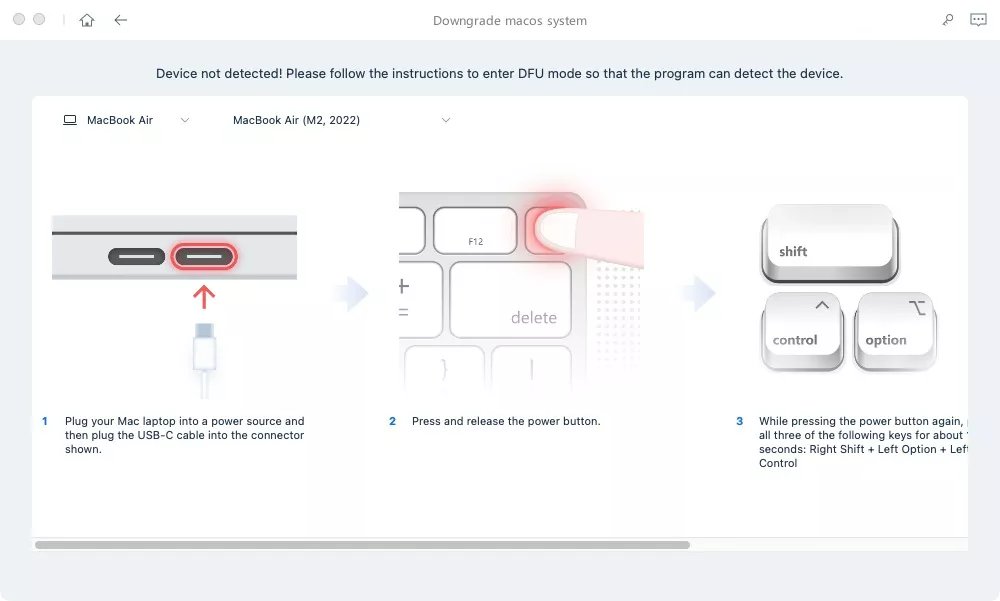
Step 4. Download Firmware Package
UltFone iOS System Repair will detect your macOS version automatically and display the downgradable macOS firmware. Click “Download” to get the package.
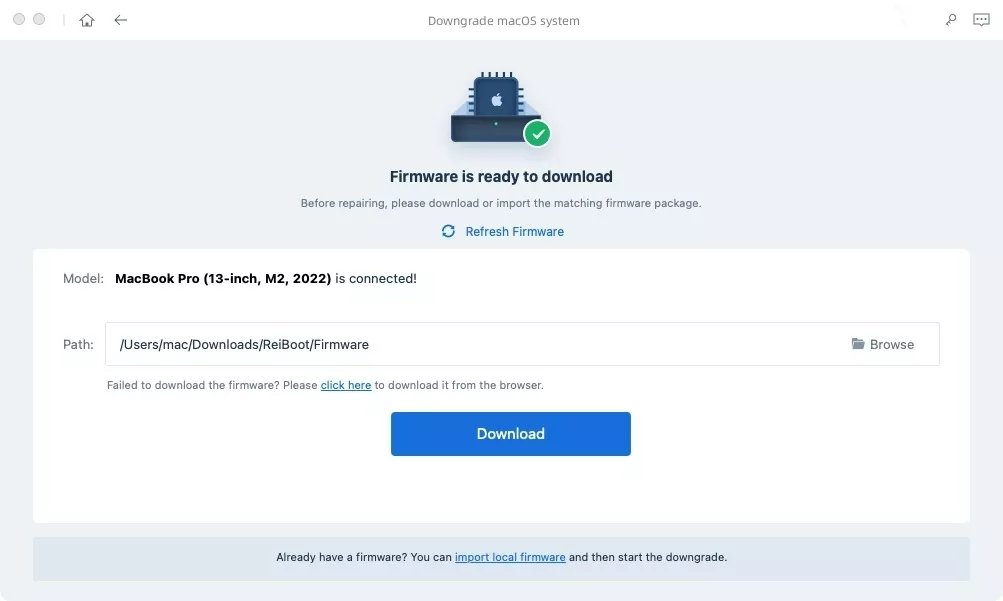
· If you failed to download the firmware, just hit the ‘click here’ to download it through browser.
· If you've already have a firmware on computer, just click import local file to import the firmware manually.
It may take a few minutes to download the firmware.
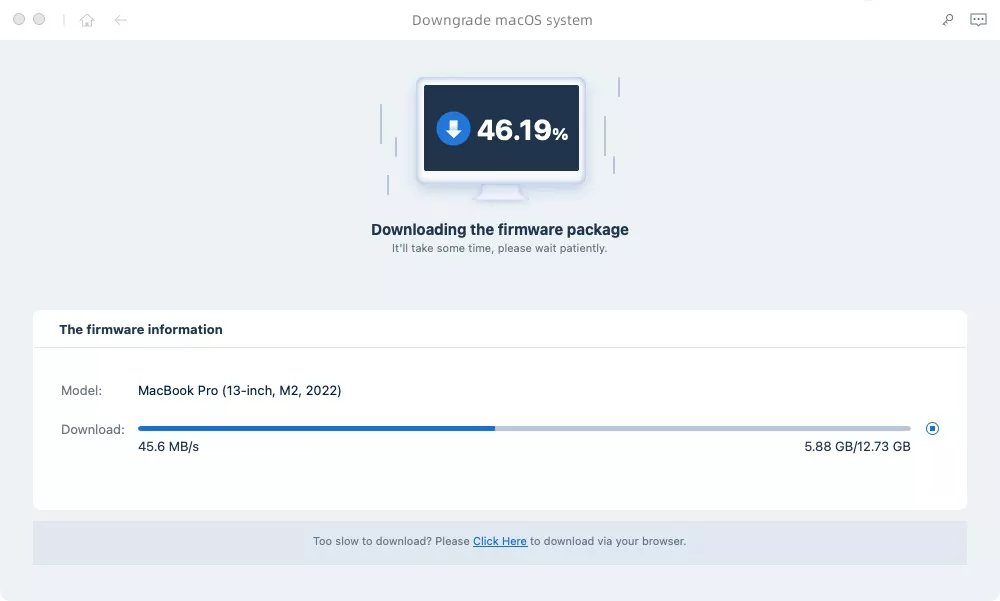
- Note:
- Unsigned IPSWs cannot currently be restored via UltFone iOS System Repair. If the macOS version is not supported to downgrade, the program will prompt that no downgradable macOS firmware found.
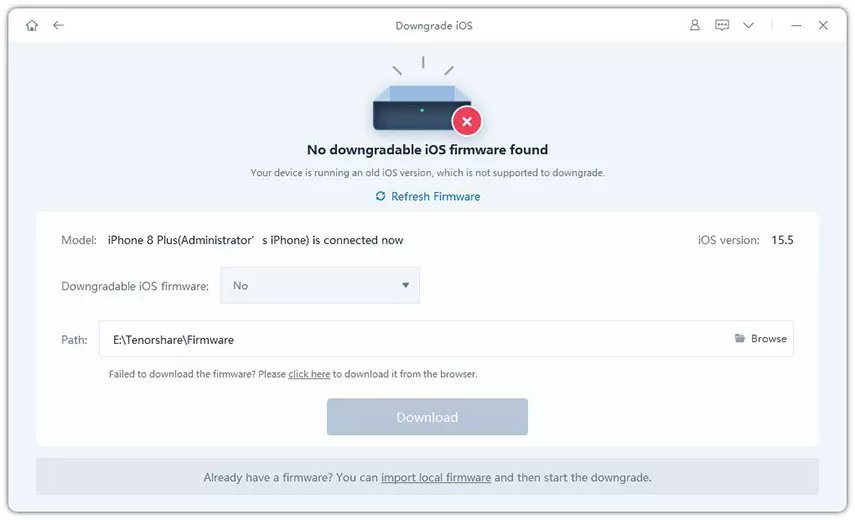
Step 5. Initiating Downgrade
Once the firmware package is downloaded on your computer, you can click 'Initiating Downgrade' to downgrade macOS.
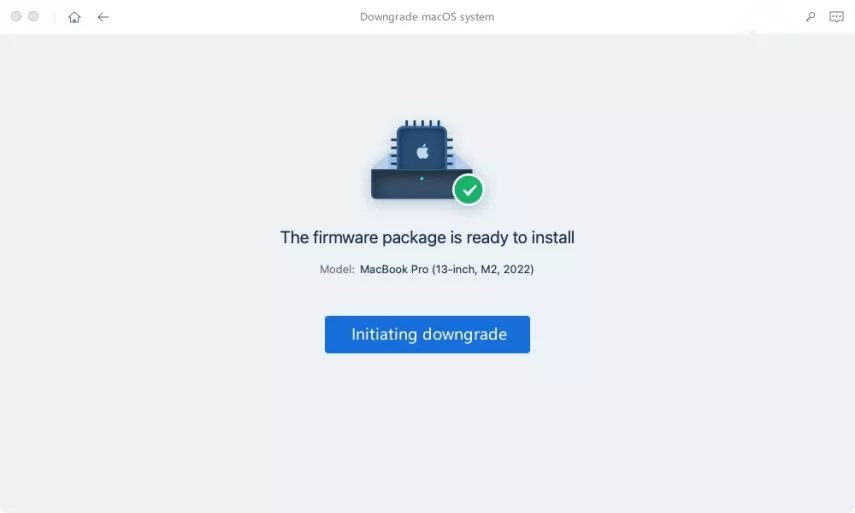
Initiating Downgrade will cause all data and settings loss, please make sure that you have made a backup before. If confirmed, then click “Continue” button.
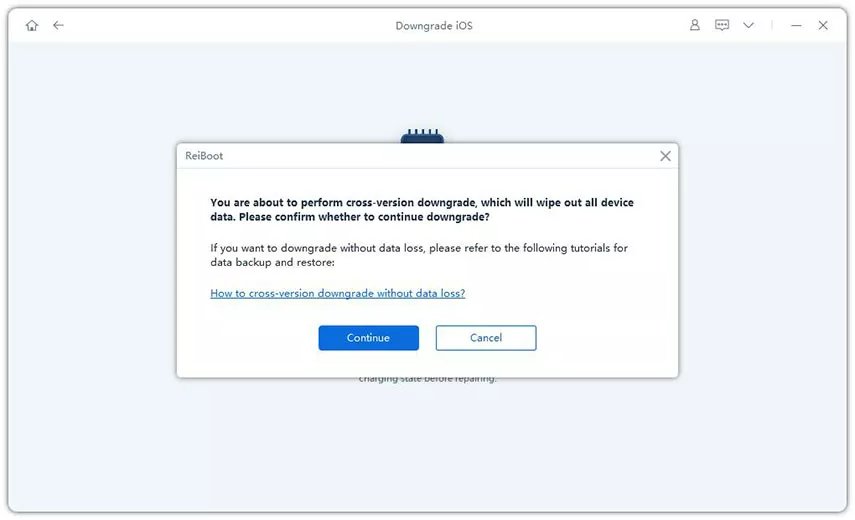
Step 6. Downgrading
The program starts to downgrade macOS, please do not disconnect your device during the downgrade process.
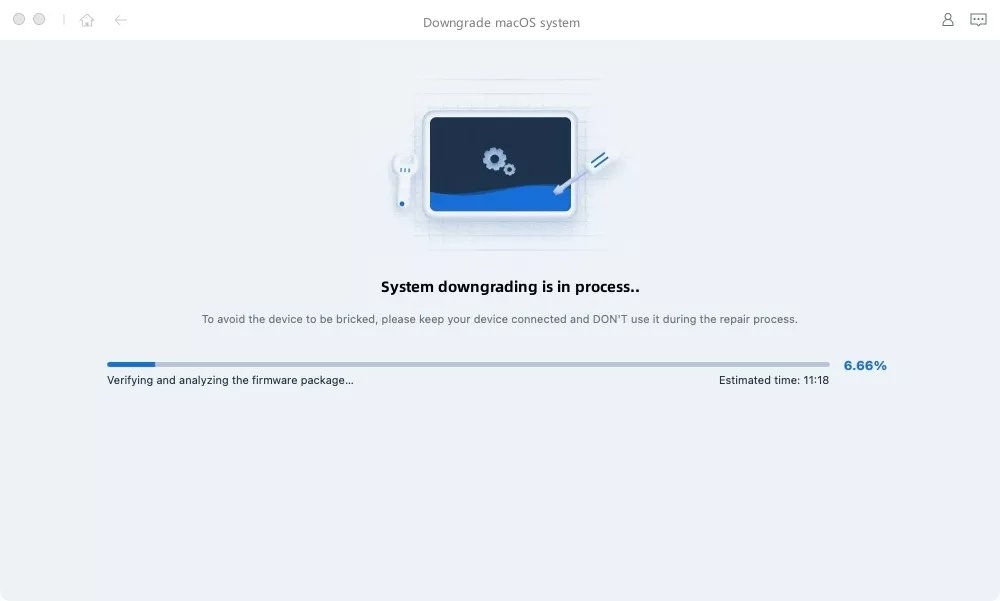
When the downgrade is completed, you will see the completed page and your mac devices will go back to the previous version.
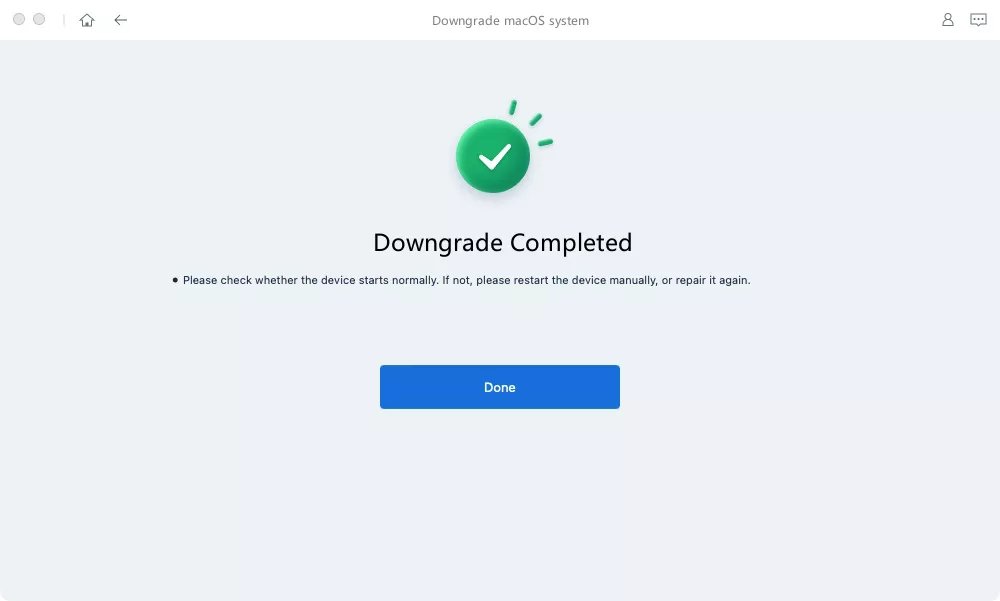
Part 3: Upgrade macOS
Whether you want to update to the latest macOS version or revert to a previous version due to compatibility issues, UltFone iOS System Repair provides a hassle-free solution that saves time and effort. With just a few clicks, you can upgrade your macOS version, and UltFone iOS System Repair will handle the rest.
This guide mainly introduce how to update your Mac devices. You need to download and install the UltFone iOS System Repair on your computer first, then follow the steps below.
With UltFone iOS System Repair, you can be sure that your Mac will be updated to the latest version with ease and without any risk of data loss or damage to your system. Here is how to update your macOS Update macOS without a hitch.
Step 1. Connect Both Mac Devices
Run UltFone iOS System Repair on your computer and connect both mac devices. Once the devices are connected, click “More Features” at the bottom left of the panel.

Step 2. Choose Upgrading System Option
No matter beta version or final version, you should choose "Upgrading System" mode. Then, click the button below.
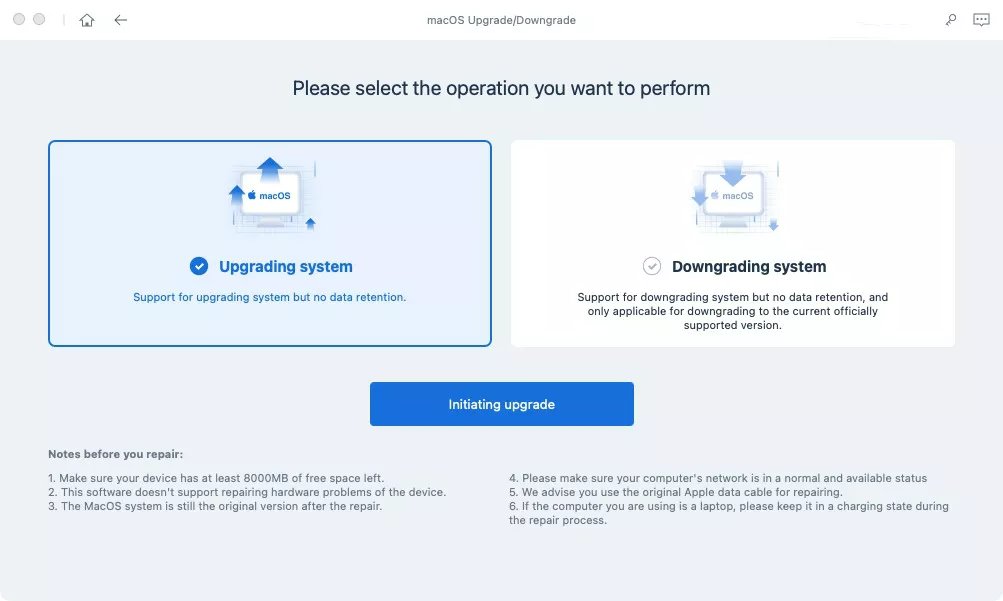
Step 3. Enter into DFU Mode
Follow the instructions below to put your mac into DFU mode. The methods are different from models, please make sure you choose the right model.
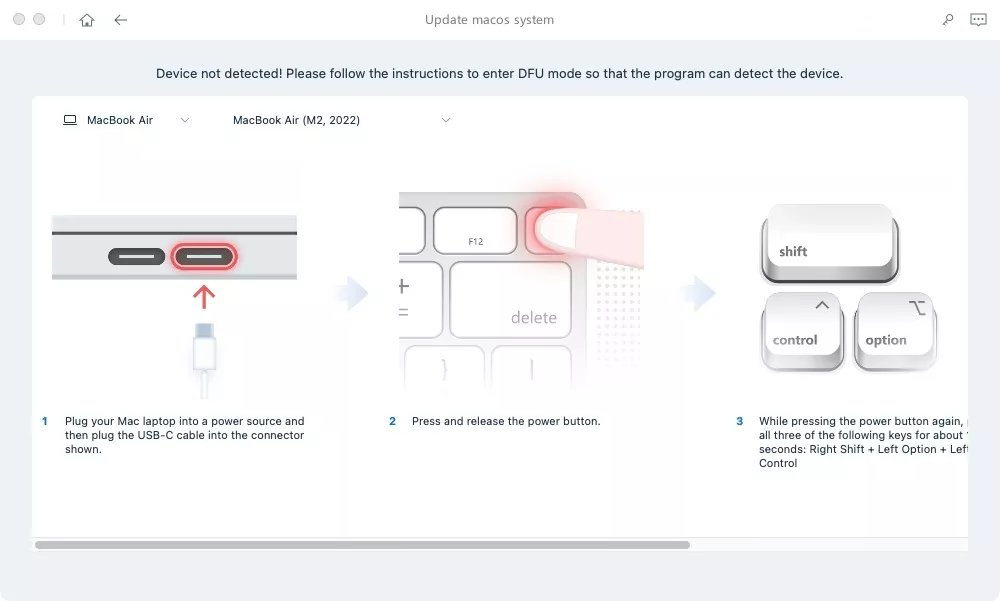
Step 4. Download Firmware Package
UltFone iOS System Repair will detect your macOS version automatically and display the upgradable macOS firmware. Click “Download” to get the package.
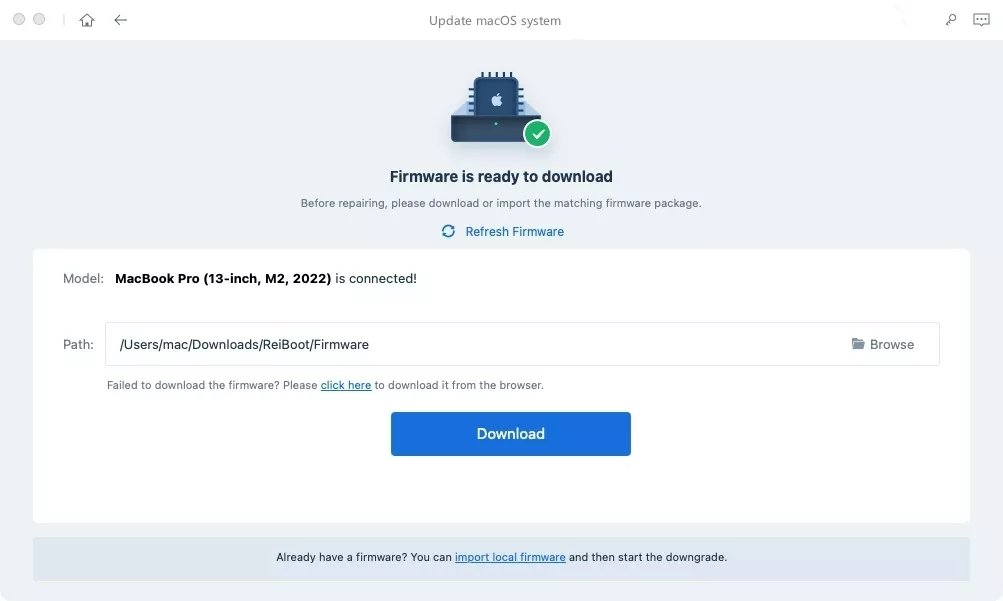
· If you failed to download the firmware, just hit the ‘click here’ to download it through browser.
· If you've already have a firmware on computer, just click "import local file" to import the firmware manually.
It may take a few minutes to download the firmware.
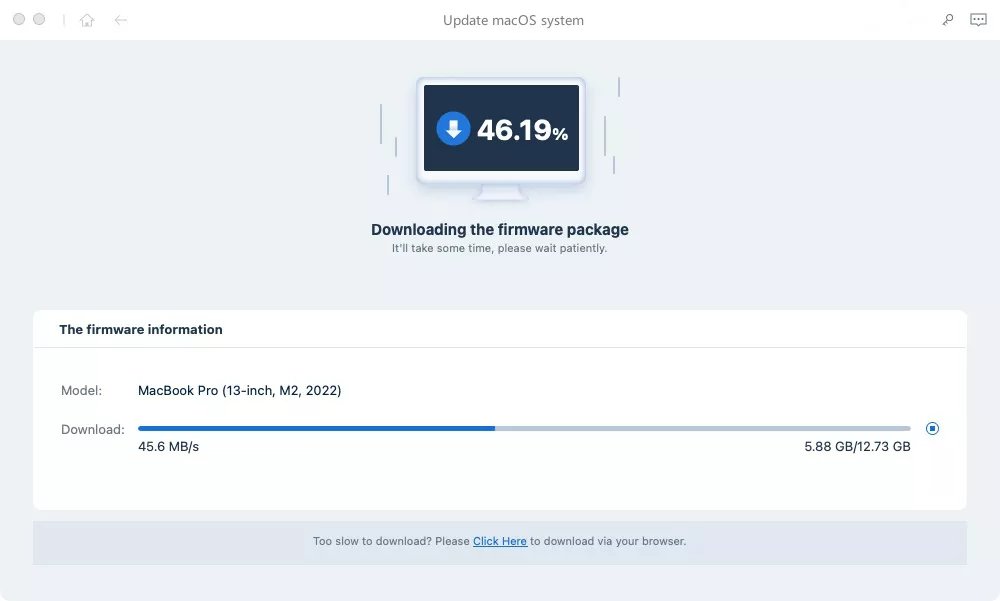
- Note:
- Unsigned IPSWs cannot currently be restored via UltFone iOS System Repair. If the macOS version is not supported to upgrade, the program will prompt that no upgradable macOS firmware found.

Step 5. Initiating Upgrade
Once the firmware package is downloaded on your computer, you can click 'Initiating Upgrade' to update macOS.
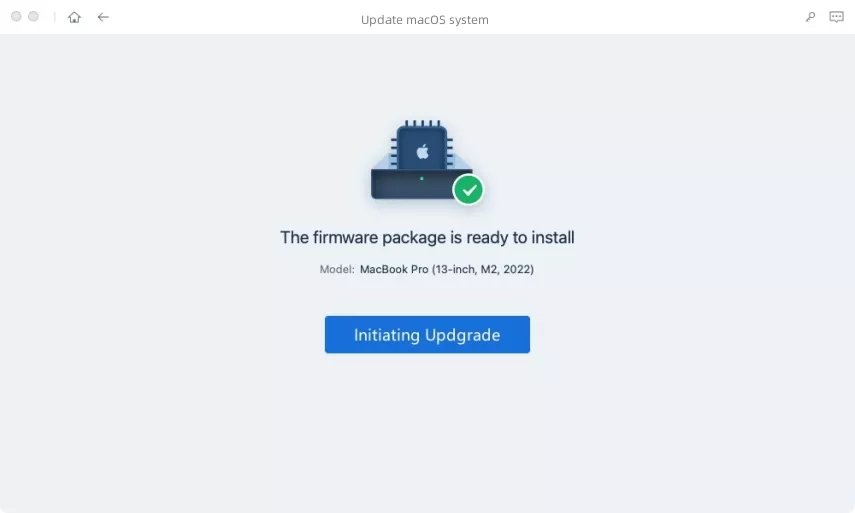
Initiating Upgrade will not clear your data. If confirmed, then click “Continue” button.

Step 6. Upgrading
The program starts to update macOS, please do not disconnect your device during the upgrade process.
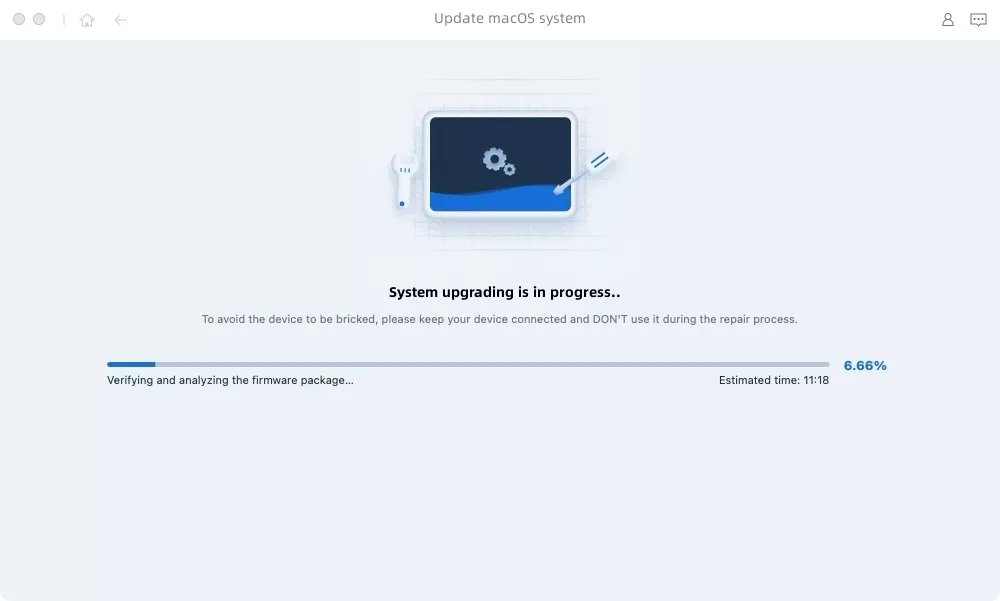
When the upgrade is completed, you will see the completed page and your Mac devices will be the newest version.
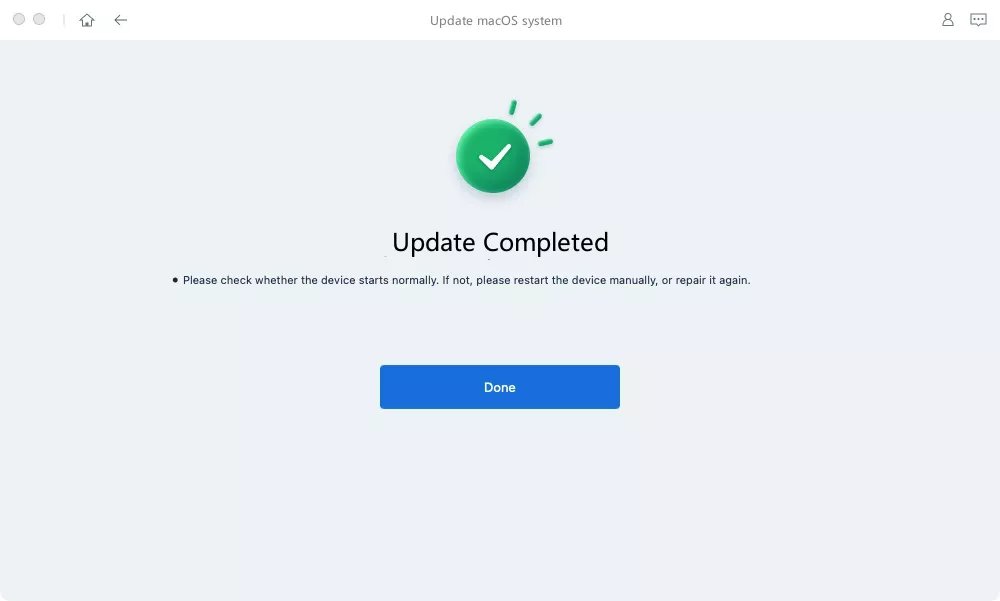
- Note:
- If your Mac models is with the Apple T2, before repairing done, you should follow the instructions below steb by step:
- After you finished all the steps, please click the "Done" button and your Mac with Apple T2 will be upgraded successfully.



